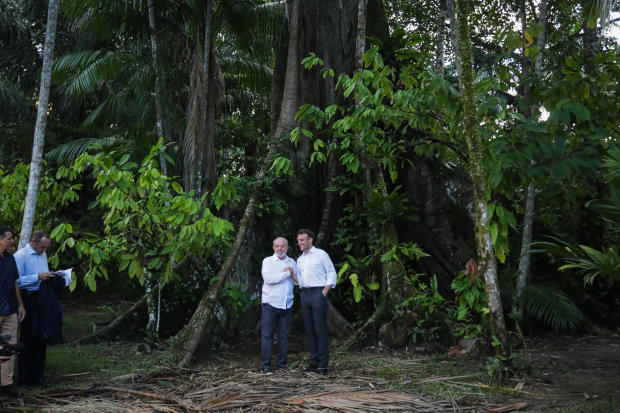Brazil and Colombia see "remarkable" decrease in forest destruction after leadership changes, data show
Forest destruction in Brazil and Colombia fell "steeply" between 2022 and 2023, according to data from the University of Maryland's GLAD Lab that has been shared on the World Resources Institute's Global Forest Watch. In Brazil, primary forest loss decreased by 36%, and in Colombia it decreased by 49%, which the WRI called a "remarkable" drop.
"Yet despite these dramatic reductions, the rate of tropical primary forest loss in 2023 remained stubbornly consistent," Forest Watch researchers warned, due to huge spikes in tree cutting in Bolivia, Laos and Nicaragua. The data show an area of forest about the size of 10 football fields being destroyed globally every minute on average.
But the WRI said the changes in Brazil and Colombia showed the difference political will could make.
In Brazil, the WRI said the reduction in forest loss started with the governmental transition from former President Jair Bolsonaro, who eroded environmental protections, to returning President Inácio Lula da Silva, who has pledged to end deforestation.
In Colombia, the shift in forest loss also came alongside a change in leadership, with the administration of President Gustavo Petro Urrego focusing on rural and environmental reform.
"As some countries show political will to reduce forest loss and others do not, the frontiers of forest loss are shifting," the WRI said.
"There are just six years remaining until 2030, by which time leaders of 145 countries promised to halt and reverse forest loss," the WRI said. "While the declines in forest loss in Brazil and Colombia show promise towards that commitment, it's clear that the world is falling far short of its targets."
While deforestation remains a major concern globally, a study published several years ago offered hope that even forests cut or burned down could regrow almost completely in just a couple decades if humans leave them to do so.
The study published in the journal Science looked at 77 different forest sites across the tropics that were abandoned after deforestation. When left alone by people for 20 years, scientists found the forests regained on average 78% of their original growth.




